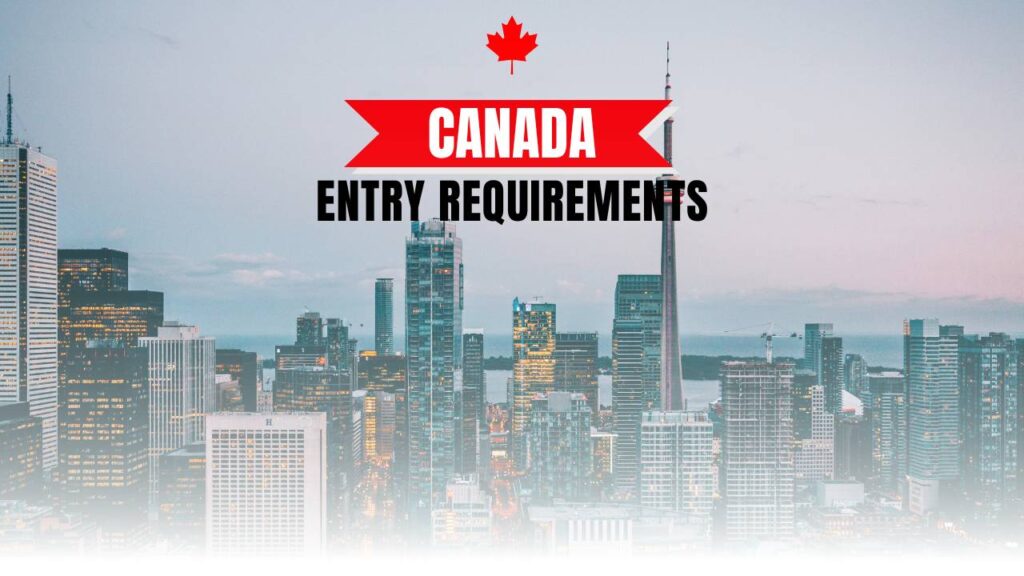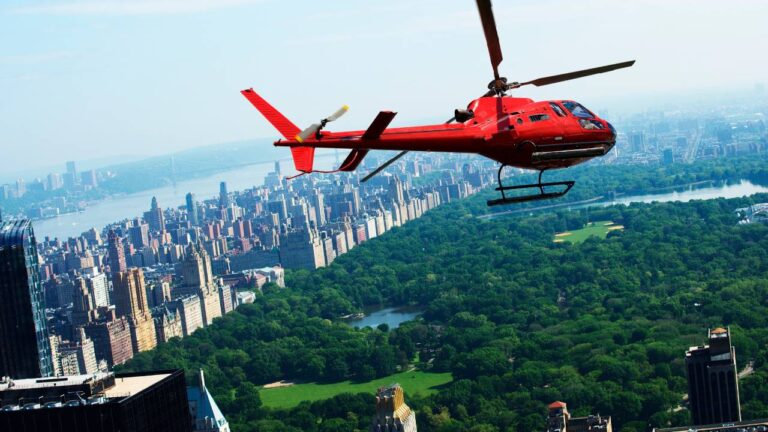Canada continues to be one of the most sought-after destinations for tourists, students, workers, and immigrants worldwide. Its natural beauty, robust economy, multicultural society, and quality of life attract millions every year. As global travel evolves and international relations adapt, the Canada entry requirements are regularly updated to ensure the safety, security, and smooth processing of travelers.
In 2025, several significant changes and updates have been introduced that all prospective visitors and immigrants should be aware of before planning their trip or relocation. Understanding these changes thoroughly is essential to avoid delays, refusals, or complications when applying for visas or entering Canada. Here, know the latest Canada entry requirements in detail, highlighting what is new and what travelers must prepare for.
Canada Entry Requirements in 2025
Canada entry requirements refer to the rules, documents, and procedures that foreign nationals must follow to gain lawful entry into Canada. These requirements depend heavily on the purpose of the visit—whether for tourism, study, work, or immigration—and on the traveler’s nationality and current residency status. Some requirements are specific to certain provinces or types of programs, such as Quebec’s immigration policies or the Atlantic Immigration Pilot. The Government of Canada has streamlined many processes to make travel easier while reinforcing security measures and adapting to new global health guidelines. These updates reflect Canada’s commitment to welcoming legitimate travelers while managing risks related to immigration and public health.
In 2025, travelers will notice updates primarily around visa application procedures, health declarations, electronic travel authorizations, and enhanced biometric data collection. Canada is introducing new programs aimed at facilitating entry for international students and skilled workers to help meet labor market demands. It is equally important to note that visa fees and processing times may fluctuate depending on demand and geopolitical factors, so early preparation is advisable. Understanding these evolving requirements ensures applicants are not caught off guard by last-minute changes.
1. Updated Visa and Electronic Travel Authorization (eTA) Policies
One of the major changes in the Canada entry requirements for 2025 concerns visa exemptions and the Electronic Travel Authorization (eTA) system. The eTA is mandatory for visa-exempt foreign nationals traveling to Canada by air. In 2025, the Canadian government has expanded the list of countries eligible for the eTA and updated the application process to enhance efficiency and security. This move is intended to expedite border processing for low-risk travelers while maintaining thorough security screenings.
Applicants can now apply for eTA online with an improved user interface and faster processing times, often receiving approval within minutes. The validity period of eTAs has been extended to five years or until the passport expires, whichever comes first, providing travelers with more flexibility and reducing the need for repeated applications. The eTA now requires applicants to submit biometric data, including fingerprints and a photograph, at designated enrollment centers before approval, enhancing identity verification and minimizing fraudulent applications.
For travelers from countries not eligible for an eTA, traditional visitor visas remain necessary. However, the visa application process has been digitized further, allowing applicants to submit biometrics and supporting documents online in many cases, reducing in-person appointments and wait times. The government has also increased the number of visa application centers worldwide, improving accessibility. Canada has implemented stricter screening measures to detect potential inadmissibility, including security, criminal, or medical grounds, emphasizing the importance of thorough preparation.
2. New Health and Safety Protocols
Canada remains fully committed to protecting the health and safety of both travelers and residents in 2025. Although many countries have relaxed COVID-19 protocols, Canada continues to enforce specific health measures at its borders. These updated requirements reflect a proactive and cautious approach to dealing with current and future health risks. All travelers must now complete a mandatory health declaration before boarding flights to Canada. This document helps authorities identify potential risk factors early and prevent the spread of infectious diseases upon arrival.
Travelers must provide valid proof of vaccination or an official medical exemption in accordance with Canadian health guidelines. Accepted documents follow the Canadian COVID-19 vaccination framework or other immunization requirements depending on public health conditions. At airports and border crossings, officials conduct random health screenings to identify symptoms or signs of illness. These precautions ensure that Canada remains vigilant against health threats. The government also strongly advises travelers to carry comprehensive health insurance that covers emergency care, hospitalization, and any required isolation due to illness.
Health regulations may evolve quickly depending on seasonal flu outbreaks or global pandemics. Travelers must stay informed about policy updates to remain compliant. In case of a health emergency or rising infections globally, Canada may reinstate stricter requirements, such as mandatory quarantine or negative test results. Checking updates through official Canadian government websites ensures travelers enter the country smoothly and avoid last-minute disruptions.
3. Enhanced Biometric Data Collection
In 2025, Canada has expanded its biometric data collection requirements for a broader range of travelers. The government now requires fingerprints and photographs from most applicants seeking temporary visas, work permits, and study permits. This update aims to streamline the identification process, improve national security, and reduce the chances of identity fraud. Biometric enrollment is now an essential step in the application process for many foreign nationals.
Applicants must visit designated Visa Application Centers (VACs) or biometric enrollment centers to complete this requirement. Some regions have introduced mobile biometric services, making the process more accessible, especially in remote areas. These biometric identifiers enable immigration officers to verify applicant identities quickly and accurately, enhancing both efficiency and security at the borders.
Canada stores biometric data securely and uses it strictly for immigration and border security purposes. It adheres to strict privacy laws and data protection protocols. By expanding the scope of biometrics, Canada is reinforcing its commitment to building a modern, secure, and responsive immigration system. Travelers must factor in the time and location needed for biometric appointments when organizing their application timeline to avoid delays.
4. New Programs for International Students and Skilled Workers
Canada has rolled out several new programs in 2025 aimed at attracting top international students and skilled professionals. These initiatives simplify immigration procedures and offer faster entry routes for qualified applicants. The government recognizes that skilled workers and students drive innovation and contribute significantly to economic growth. Therefore, these updated programs provide clear benefits and more accessible pathways to Canadian residency.
For international students, Canada now offers pre-approved study permits for graduates of select Canadian institutions. This means that students can begin their educational journey with minimal visa processing delays. They can also work more hours during their studies and transition smoothly into the workforce after graduation through an improved Post-Graduation Work Permit (PGWP) program. This revised PGWP allows extended work durations and quicker access to permanent residency.
Skilled workers benefit from enhancements to Express Entry and Provincial Nominee Programs (PNPs). In 2025, provinces prioritize labor sectors in high demand, such as healthcare, IT, and skilled trades. New pilot programs also welcome workers in emerging industries like green energy and AI technology. The Canadian immigration system now leverages digital screening tools and streamlined processing to reduce waiting times, making the entire journey more efficient for skilled professionals looking to settle in Canada.
5. Important Documents and Preparation Tips
Travelers must prepare a complete set of required documents to meet Canada’s entry requirements in 2025. A valid passport with at least six months of validity beyond the planned stay is mandatory. Depending on your country of origin, you may also need a visitor visa or an Electronic Travel Authorization (eTA). It’s important to confirm the specific visa category that matches your travel purpose—whether for study, work, business, or family visitation.
Applicants must provide proof of sufficient funds to cover living expenses, accommodation, and return travel. Immigration officers often request a detailed travel itinerary, confirmation of lodging, and, in some cases, an invitation letter from a Canadian resident or institution. All travelers must show acceptable vaccination records, especially for COVID-19 and other communicable diseases, depending on current health advisories. These documents must be translated and notarized if not originally in English or French.
In addition to visa-specific documents—such as acceptance letters for students or job offers for skilled workers—applicants should carry extra photocopies and digital backups of every important file. Checking the official IRCC website regularly helps applicants stay up to date with changes in policies, required forms, and processing timelines. Being well-prepared with complete, accurate, and organized documents significantly increases the chances of a smooth and successful entry into Canada.
How to Immigrate to Canada Without a Job Offer: Smart & Legal Ways
Canada’s dynamic approach to entry requirements in 2025 aims to provide safer, faster, and more efficient border experiences for all travelers and those seeking to contribute to the country’s diverse society and economy. Staying proactive and informed is the key to a successful journey to Canada in the coming year.
FAQs
1. What are the basic entry requirements for Canada in 2025?
To enter Canada in 2025, travelers need a valid passport, visa or Electronic Travel Authorization (eTA) depending on nationality, proof of financial support, health documentation (including vaccination proof), and any supporting documents related to the purpose of the visit (such as job offer, study permit, or family invitation).
2. Do I still need a COVID-19 vaccination to enter Canada in 2025?
While full COVID-19 vaccination is no longer mandatory for all travelers, Canada still recommends vaccination and may require proof during health emergencies or when entering from high-risk regions. Other immunizations may also be required based on public health concerns.
3. What biometric information is required for Canada visa applications?
In 2025, most visa applicants—including those applying for study permits, work permits, and visitor visas—must provide biometric data such as fingerprints and a photograph at Visa Application Centers (VACs). This helps confirm identity and improve border security.
4. Has Canada changed visa rules for international students?
Yes, Canada has introduced faster processing and simplified procedures for international students in 2025. Students from approved institutions may qualify for pre-approved permits and enjoy more flexibility through programs like the enhanced Post-Graduation Work Permit (PGWP).
5. What documents do I need to carry when traveling to Canada?
Required documents include a valid passport, visa/eTA approval, vaccination and health records, financial proof, a detailed travel itinerary, accommodation details, and any relevant letters (admission, job offer, or family invitation).
6. Is travel insurance mandatory to enter Canada?
While not officially mandatory for all visitors, Canada strongly recommends having travel or health insurance that covers emergencies, especially for tourists, students, and temporary workers. Some visa categories may require proof of insurance.
7. Can I enter Canada without a visa in 2025?
Citizens of visa-exempt countries can still travel to Canada with an eTA for short visits, but all travelers must meet updated health and security screening protocols. Check the IRCC website to confirm if your country qualifies for visa-free travel.
8. Are there any special requirements for skilled workers entering Canada?
Yes, skilled workers may benefit from updated pathways under Express Entry and Provincial Nominee Programs (PNPs). Canada has prioritized occupations in healthcare, technology, and trades for faster processing and easier access to permanent residency.
9. Are there any age or financial criteria for entering Canada?
While there are no strict age limits for tourists, work and study visa applicants must meet age-specific criteria depending on the program. Financial documentation is required to prove that you can support yourself during your stay.
10. Where can I get the most up-to-date information on Canada entry requirements?
The official Immigration, Refugees and Citizenship Canada (IRCC) website provides the most current entry requirements, visa application processes, and health protocols. Travelers are advised to check the site frequently before making travel plans.






